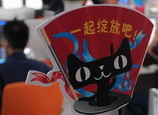
For foreign companies, using the renminbi means they can avoid foreign exchange risks and reduce costs. They also find it easier to negotiate with Chinese companies in their own currency.
More than one-third of Chinese companies expressed a preference for payment in yuan, according to a survey by Western Union of 1,000 Chinese companies last year. Their preference was based on convenience and reduced foreign exchange fluctuations.
But about one-fifth of Chinese companies chose to add about 3 percent in fees in transactions in other currencies, according to the survey.
Many Chinese companies were reluctant to tell their business partners in the United States and Europe to settle in yuan, according to Jenny Berlin, public relations manager at Western Union. Because settling in yuan is such a new possibility, many Western companies were unaware of the preference of their Chinese partners, she said.
Only about 0.24 percent of global trade was conducted in yuan payments in 2011, and it ranked 24th among currencies, according to the Society for Worldwide Interbank Financial Telecommunication, the transaction platform for international banks. The most used currencies are the US dollar, the euro and the Japanese yen.
China was responsible for about 11 percent of world trade in 2011, but this was mainly settled in US dollars. For companies from a third country, this means they are doubly exposed to the risk of currency fluctuation.
















 Weekly Photos of China: Nov 5-11
Weekly Photos of China: Nov 5-11


![]()
